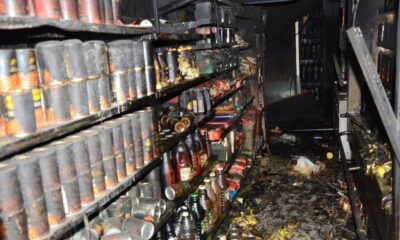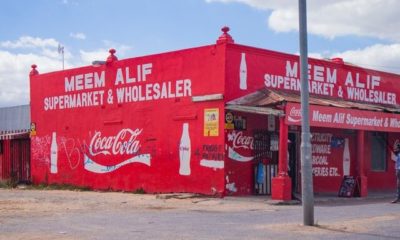News
SA’s New Smoking Laws Could Snuff Out Small Businesses, Say Traders

‘Totally Unworkable’: Tavern Owners Push Back on New Smoking Laws
From job losses to corruption risks, small businesses say SA’s proposed smoking ban could do more harm than good
South Africa’s tavern owners and bar operators are fuming over proposed anti-smoking laws that they say threaten not just the hospitality sector’s bottom line—but the survival of township businesses altogether.
The Department of Health is currently processing the Tobacco Products and Electronic Delivery Systems Control Bill, a sweeping piece of legislation that would outlaw all indoor smoking, impose strict rules on vaping and e-cigarettes, and introduce tough new penalties for non-compliance.
But traders say the law is out of touch with realities on the ground, especially in informal areas and townships, where space, safety and staffing make the proposals impossible to enforce.
More Than Just a Smoking Ban
According to the Gauteng Liquor Traders Association (GLTA), many businesses already made costly renovations to comply with previous legislation that required 25% of their venue be set aside for smokers. That space—and the loans some took to build it—would now be wasted under the new law, which abolishes all indoor smoking outright.
And while large city restaurants may be able to adapt, that’s not the case in townships, the association says.
“The law suggests that smokers must move outdoors and stand 10 metres away from entrances, windows or ventilation,” said a GLTA spokesperson. “In a township, there’s often no space like that. Ten metres in any direction might put someone in a neighbour’s yard or the street.”
Beyond logistics, security concerns loom large. Pushing patrons away from well-lit, secure tavern spaces makes them vulnerable to muggings and assaults. “You’re sending people to smoke in alleyways or dark corners. That’s dangerous.”
Owners, Staff at Risk Too
The law doesn’t spare business owners or staff. If a bar owner wants to smoke, they too must step away from the venue—leaving the premises potentially unguarded, or operations disrupted.
And the consequences of non-compliance? Steep. Three months in jail for smoking in a banned space. Ten years for smoking near a non-smoking employee.
“It’s extreme,” the GLTA says. “Surely the justice system has bigger priorities.”
Red Tape, Real Risks
Critics also warn that the proposed offences could open the door to bribery and harassment from some elements within the SAPS or local law enforcement.
“Let’s be honest: some officials will exploit this,” said one tavern owner from Soweto. “They’ll show up, look for a smoker, and suddenly the owner must ‘pay’ or face arrest.”
Others fear the law may drive the tobacco industry deeper underground, feeding South Africa’s already massive illicit tobacco trade, which accounts for 60–70% of all tobacco sales, according to Business Against Crime South Africa (BACSA).
That’s R18 billion in lost tax revenue every year. And the new bill? It includes no real provisions to tackle the illicit market no border control upgrades, no tracking systems, no supply chain enforcement.
A Need for Balance, Not Backlash
While no one is denying the health risks of smoking, many in the hospitality and retail trade believe the bill goes too far, too fast—and without a plan to soften the blow for the economy.
“This is not about defending smoking,” the GLTA explains. “It’s about defending small businesses that already operate in high-risk, low-margin environments.”
With public hearings and deliberations still underway, small traders hope their voices won’t be drowned out in the name of health policy.
“We support public health goals,” the GLTA says. “But they must come with fairness, practicality and consideration for the people trying to earn an honest living.”
The message is clear: regulate, don’t decimate.
{Source: BusinessTech}
Follow Joburg ETC on Facebook, Twitter , TikTok and Instagram
For more News in Johannesburg, visit joburgetc.com



























